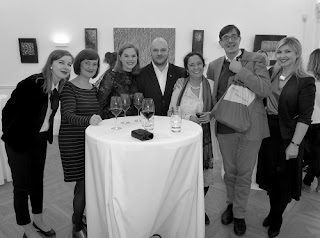On 12 October, I embark on the second batch of ten classes in my Mahler Zoom course, beginning with the grim marches of the Sixth Symphony, ending in the peaceful resolution of the at-one-with-the-world heartleap in Deryck Cooke's performing version of the Tenth Symphony (and completed it must be).
The first term led me to the surprising realisation that of the first five symphonies, I love the Fourth the best, simply because it's absolutely perfect. You could say that in the Second and Third Mahler dares more, but it's a harder challenge to make them work.
Edward Gardner pulled off Saturday night's performance of the 'Resurrection', launching his London Philharmonic Orchestra's 2023-4 season. I was going to give it a miss, because sitting on my special cushion isn't easy at the moment, and I always feel a bit outside the first movement - not a good start. But then our conductor turned out to be a born writer in his First Person on the symphony for theartsdesk. I was sold, and I'm so glad I went. I endorse everything my colleague Rachel Halliburton writes about the performance. The rare spectacle of the whole audience rising within seconds of the end was absolutely deserved, even if the choral climax does tend to have that effect. (Both images by Mark Allan).
Delighted to say that I met Ed by chance on the terrace of Oslo's stunning Opera House while I was there in June for Pekka Kuusisto's Shostakovich one-off with the Norwegian Chamber Orchestra. He was very warm in his friendliness, so I asked if he might come along as guest, as Jonathan Bloxham and Mark Wigglesworth did last term - and I hope Catherine Larsen-Maguire, having pulled off the rare feat of what sounds like a spectacular performance of the Seventh with the National Youth Orchestra of Scotland, will do so for the Seventh. I gave Ed the option of any of the others and he chose Das Lied von der Erde. Let's see who else might come along.
I know it can never be quite like the line-up during the ten classes on the symphony I ran during lockdown - the busiest of conductors like Vladmir Jurowski, Paavo Järvi and Antonio Pappano actually had the time then - but we've built up a fair bit of goodwill. Do join us - all the details are on the flyer below (click to enlarge).

%20Mark%20Allan.JPG)


























